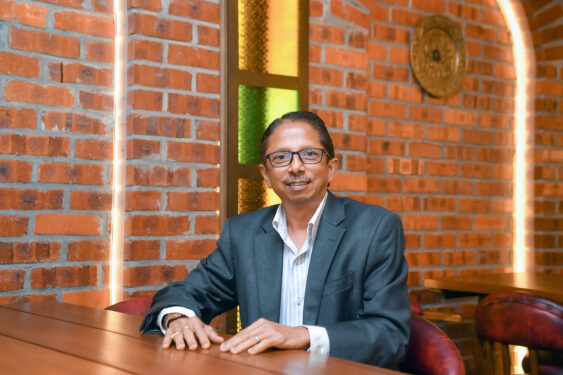OVER the past year, the global semiconductor industry has undergone a tremendous pace of growth, driven by demand for technology and innovation.
As capacity building has been the theme in 2022, the resulting impact on global semiconductor sales has been rather obvious as growth slowed down last year to just 3.2% year-on-year (yoy) to US$573.5 bil.
Notably, the pace of growth has decelerated with growth in 4Q 2022 contracted by 14.7% yoy which was much steeper than the preceding quarter’s decline of 3% yoy.
Even as the industry is experiencing severe headwinds with many major US-based tech companies announcing layoffs, now is not the time for the semiconductor industry to be frugal but to focus on long-term resilience, according to think tank Datametrics Research and Information Sdn Bhd (DARE) managing director Pankaj Kumar.
“At a time when the industry is facing global headwinds while selected markets are impacted by regulatory hurdles, the Malaysian semiconductor industry will continue to be well sought after by end-users due to its unique occupied slot in the global supply chain,” he projected.

With talent crunch faced by many industry players, Pankaj opined that this is the best time to upskill present workforce to enable Malaysian-based semiconductor players and related support service providers to be ahead of others.
Sustainability is key
Meanwhile, the Environment, Social and Governance (ESG) theme that is changing how business is conducted today has also caught up with the semiconductor industry as adoption of sustainable business practices are demanded by not only by investors but by end customers.
The steps taken by authorities like the US Customs and Border Protection (CBP) against several Malaysian-based companies in the manufacturing, plantation and gloves sector on issues related to human rights can have devastating impact if not tackled head-on.
“Malaysia’s semiconductor industry which is one of Malaysia’s biggest export earner must invest in ensuring that today’s business processes, working environment and operations adopt best global practices in relation to ESG issues,” Pankaj pointed out.
“This will ensure that the industry not only remain relevant but stays ahead of its global peers in embracing sustainability.”
As the global economic growth is expected to be much slower this year with the International Monetary Fund (IMF) looking at an annual gross domestic product (GDP) growth of 2.9% while the World Bank expects a mere 1.7%, the global semiconductor industry may experience the first annual drop in sales since 2019.
“Hence, this is good time for the semiconductor industry to consolidate its market position, build resilience and prepare for the next upcycle,” stressed Pankaj. “At the same time, as talent management is key, investing in people and upskilling them to meet new challenges will help industry players to be better prepared for the future. – March 20, 2023








